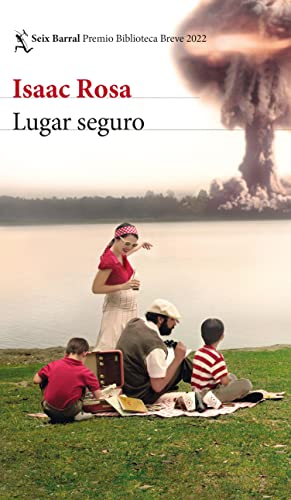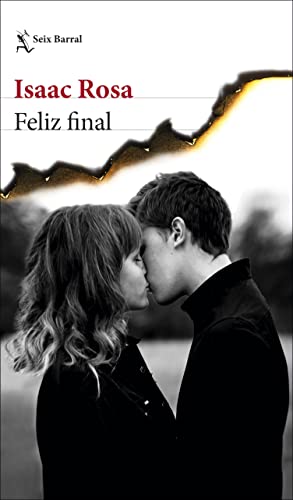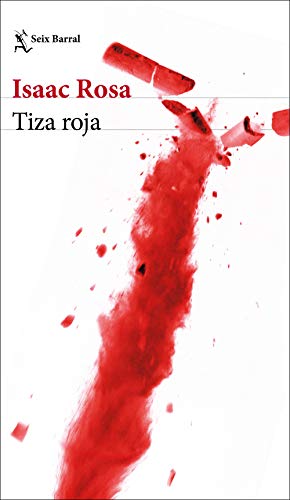Isaac Rosa is one of the most suggestive authors on the Spanish literary scene. A narrator of the everyday carried away by that magical realism necessary to accommodate so many souls substantiated in particularity, in the abyss with respect to normality, mediocrity or any other constrictions.
An author who at times reminds me of Jesus Carrasco in the deep characterization of its characters. But a guy who also brings action to his proposals from the simple consideration that surviving is already a miracle and, therefore, an adventure that always deserves to be told.
Because their stories let their protagonists speak. Its plots move with that I don't know what of improvisation that is impossible for the author but feasible for the reader. A naturalness in which everything happens without glimpsing any horizon of reading resolution towards surprise, bewilderment and the hectic sensation of inhabiting another skin.
A laudable endeavor that leads us to the essence of literature, to empathy. If we add to this a virtuous ability to adorn everything with the sustained brushstrokes of inspiration, we end up discovering arguments that always transcend to that space called soul.
Top 3 recommended novels by Isaac Rosa
Safe place
The famous comfort zone is sometimes the net that picks us up after every fall. Defenestrated or simply thrown into the void like the tightrope walker who tries to reach the other side, to the horizon of his vital proposals. That is the safe place for our ambitions. Only there are guys who never get tired of trying over and over again knowing that they have nothing behind them that can withstand their failures. A safe place, as welcoming as it is enervating for those who have pretensions of prosperity, success and the doses of glory that can be achieved and that "surely" await on the other side.
Segismundo García is a salesman who has come down and believes he has found the business of his life: the sale of low-cost bunkers for the poorest classes, a promise of salvation for all budgets in the face of the feared global collapse. But Segismundo is not in his best personal or economic moment and he maintains a problematic relationship with his son and his father. They are three generations of scoundrels obsessed with social ascent, destined to crash again and again.
Safe Place takes place over twenty-four hours in which we accompany Segismundo on his business visits and on his particular search for a treasure that could solve family problems. In his journey, he confronts his pessimistic and sarcastic vision with that of some groups that, through his actions, defend that a better world is possible.
Happy ending
A game of words as simple as it is effective. The happy ending is the one that occurs in stories and fables. The happy ending is the forced belief that we are right with what we choose when the thing is ending... Unless the matter could be addressed otherwise. In that case, knowing how everything ends, one could embark on the path towards amendment and improvement, at least seen from the perspective of a narrator, and reader, omniscient, capable of understanding the reason for everything, fate if possible or the whole most fascinating coincidence that leads us to love even in the forbidden sense of time.
This novel reconstructs a great love beginning with its end, the story of a couple who, like so many, fell in love, lived an illusion, had children and fought against everything -against themselves and against the elements: uncertainty, precariousness, the jealousy—he fought not to give up, and fell several times.
When love ends, questions arise: where did everything go wrong? How did we end up like this? All love is a disputed story, and the protagonists of this one cross their voices, confront their memories, disagree on the causes, try to get closer. Happy Ending is a relentless autopsy of their desires, expectations and mistakes, where sedimented grudges, lies and disagreements emerge, but also many happy moments.
In this novel, Isaac Rosa addresses a universal theme, love, from the many conditioning factors that make it difficult today: precariousness and uncertainty, vital dissatisfaction, the interference of desire, the imaginary of love in fiction... Because it is possible that the love, as they told us, is a luxury that we cannot always afford.
Red chalk
Sampler of small stories where you can find jewels set with fascinating creativity. Flashes of an imaginary capable of arousing among a multitude of characters existential consonances of many, many carats...
The stories in Tiza roja deal with current affairs and Spanish life in recent years and are close stories that expand our understanding of the society in which we live. They tell, for example, the biography of a person through their bills or the nostalgia of a recently fired man for the hotels that had become his home, the life against the clock of fathers and mothers, and the routine of people who, at After all, it could be any of us.
«The selected pieces would be a reflection of the confusion with which we all live this time, and of the attempts we make to interpret, give meaning, repair damage, anticipate the next blow, imagine alternatives.» Isaac Rose
Tiza roja includes more than fifty stories, organized according to the sections of a newspaper, as an acknowledgment of the link that unites them to the field of the press, given that all the stories have appeared in newspapers in recent years. Revised, expanded and even, in some cases, modified, Isaac Rosa addresses social issues in them, topics that he universalizes from a very personal point of view that always offers new readings and invites debate.



